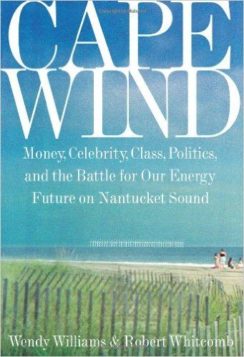Ørsted’s Cuts Jobs As Green Offshore Wind Profits Turn Red
Call it the quiet surrender. Ørsted, an oil giant that once had a market cap greater than BP, then pivoted from oil and gas into offshore wind with swagger, is...
Updated: November 18, 2020 (Originally published August 20, 2016)

by Phillip Inman (TheGuardian) Cancelling the planned new nuclear power station at Hinkley Point will be a huge victory for the offshore wind industry. The word from inside No 10 is not clear yet, but there are so many Tories, including the UK prime minister, unsettled by the prospect of the Chinese building a plant in Britain to an untested French design that the prospects of it going ahead appear slim.

As if to emphasise the continuing success of Britain’s elegant turbines in the sea, the government cleared the way for a new array off the Yorkshire coast earlier this week.
The multibillion-pound Hornsea Project Two would see 300 turbines – each taller than the Gherkin – span more than 480 sq km of the North Sea.
This comes after Dong Energy, the biggest operator of offshore windfarms in Britain, said it was planning to spend a further £6bn in the UK by 2020, convinced that the government is serious about supporting wind power.
Offshore wind has proved expensive, but is working hard to get its price per megawatt hour below Hinkley’s £92.50. Some schemes claim to generate electricity at £85.
The question now, Hinkley or no Hinkley, must be whether May can overcome the neoliberal free-market tendencies of some cabinet colleagues and push through an industrial strategy worth the name – one that embraces renewable energy and extracts business and employment for the UK from the dominant overseas firms that currently make the majority of the renewables kit.
It is not so long ago that the Guardian revealed the scandalous lack of UK involvement in the London Array wind farm off the north Kent coast. Norwegian, German and Gulf companies dominated.
Some will say it’s too late to challenge the big players like Denmark’s Dong or Siemens, which has brought at least some manufacturing to the UK with a £310m hub in Hull that employs 1,000 people.
But that misses the point. There are plenty of roles left in suppliers and service businesses that will ramp up investment if the commitment from the government to the industry is solid.
As Dustin Benton of the Green Alliance says, Britain is in a good position to build a sophisticated renewables industry that supports the generation of green energy and does the clever stuff to connect up all the various parts of the network.
The green lobby group has argued that the UK could replace Hinkley by encouraging initiatives to reduce consumption “Our report on reducing electricity demand … shows how the UK could get two Hinkleys’ worth of demand reduction by 2030 and certainly a Hinkley’s worth by 2025,” he says.
May has much to overcome. The previous administration’s withdrawal of financial support for the solar industry after a few years of lauding it as the next big thing has made many people in the renewables sector wary. Admittedly, the state cash on offer for building solar farms was extraordinarily generous and needed to be cut, but the sudden and deep reductions wiped out much of the industry, forcing many firms to wind themselves up.
Courtesy of Guardian News & Media Ltd

Sign up for gCaptain’s newsletter and never miss an update

Subscribe to gCaptain Daily and stay informed with the latest global maritime and offshore news
Essential news coupled with the finest maritime content sourced from across the globe.
Sign Up